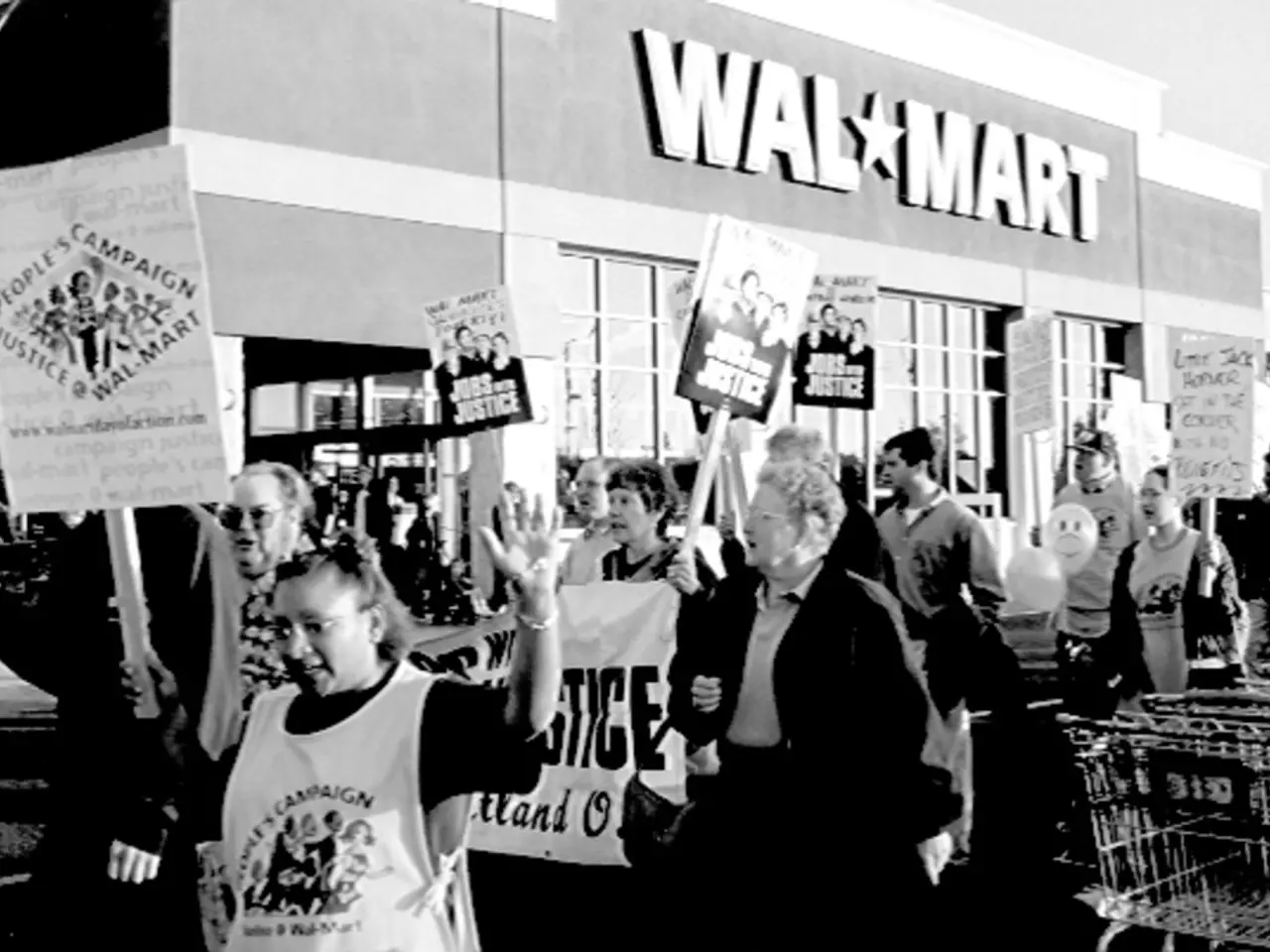Muslims' continued apprehension towards visiting parks and shops a year after the riots
In the summer of 2024, the town of Rotherham, South Yorkshire, England, was gripped by violent riots. The events left a deep and lasting impact on the Muslim community, with more than 60 men being jailed for their part in the violence[1]. One of those convicted was Levi Fishlock, who received a nine-year prison sentence[1].
The riots targeted Muslims, with hundreds of rioters reportedly engaging in verbal abuse and harassment[2]. This hostility led many Muslim residents to feel a deepened fear for their safety. Wafa, a Sudanese woman who has lived in Rotherham for five years, spent a month at home out of fear after the riots[3]. Aisha Omer, a Kurdish woman who has lived in Rotherham for seven years, recalled an incident at a supermarket where she was verbally abused and hasn't returned since[3]. Similarly, elderly community members became fearful to go out alone due to concerns over physical attacks or harassment[4].
Despite the government allocating £600,000 to Rotherham as part of a national £15m community recovery fund, some residents feel that there was a lack of formal support for the Muslim community following the riots[6]. However, the Muslim community has shown resilience in the face of adversity. Community centres and schools hosted iftars and solidarity events in the months following the riots[4]. These events served as reminders to the Muslim community that not everyone hates them and that some people genuinely care[4].
One such event that left a lasting impact was the Ramadan iftar hosted by a school in Rotherham for the first time[5]. Mahasen Hussin, a Sudanese mother living in Rotherham since 2017, highlighted this event as a glimmer of hope in the community[5]. Ibrahim Hussein also noted grassroots efforts to repair and support community spaces, which brought some comfort amid the hostility[5].
However, there remains a sense of insufficient institutional response. Community leaders, such as Abrar Javid from the Rotherham Muslim Community Forum, criticized the lack of proactive efforts by local and national leadership to build bridges with predominantly white neighbourhoods where the riots occurred[3][5]. Javid stressed the need for government or institutional programs targeting youth engagement and community cohesion, lamenting that this responsibility has fallen unfairly on local community members themselves[3][5].
A year after the riots, the Muslim community in Rotherham is still healing. Some residents, like Mona Fadul, initially considered leaving the UK after the riots but have since decided to stay due to a sense of support from their neighbors[4]. Despite the ongoing fear and disillusionment felt by some, there are glimpses of hope in the form of increased community resilience and neighborly gestures[4]. The riots occurred on 4 August 2024, when a Holiday Inn housing asylum seekers was besieged and set on fire[7]. The riots were partially triggered by disinformation spread on social media falsely identifying the attacker as a Muslim asylum seeker[7].
In summary, the Muslim community in Rotherham is still grappling with the aftermath of the 2024 riots. Despite local support from neighbours and community-led initiatives, there remains a sense of insufficient institutional response. Community leaders continue to call for systemic efforts to address community divides and engage youth, hoping to build a more inclusive and accepting society.
The Muslim community in Rotherham sought solace and unity in the face of the 2024 riots, organizing health-and-wellness initiatives like iftars and solidarity events to foster a sense of community and mental-health support. However, a lack of proactive institutional response from local and national leadership leaves community leaders such as Abrar Javid from the Rotherham Muslim Community Forum advocating for government or institutional programs targeting youth engagement and community cohesion.




